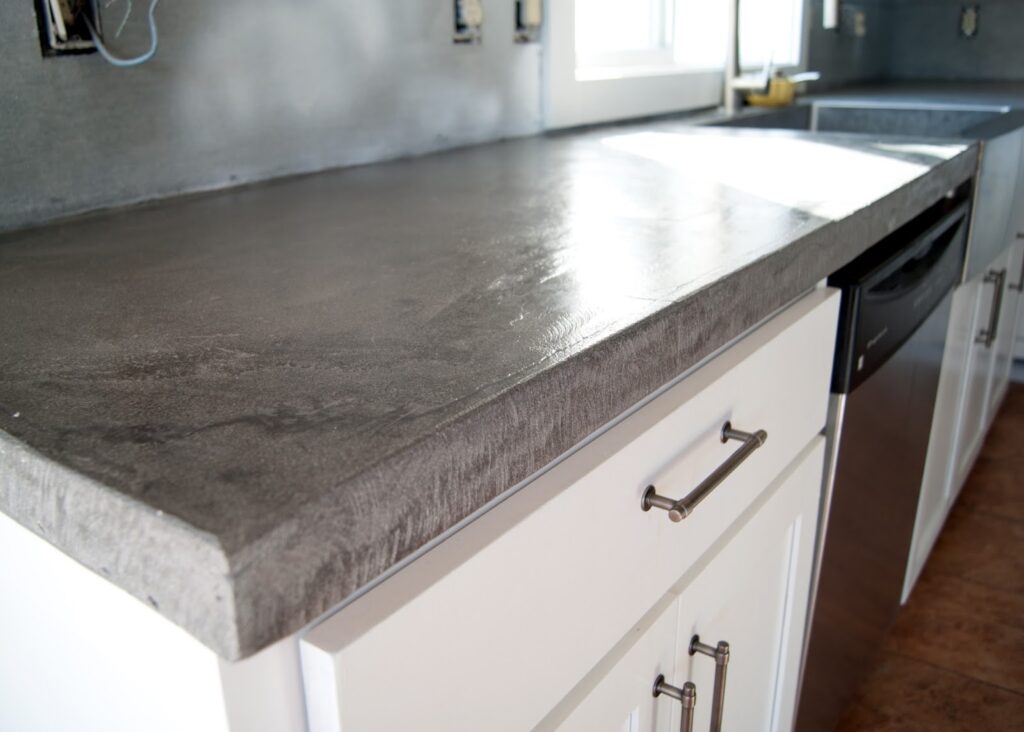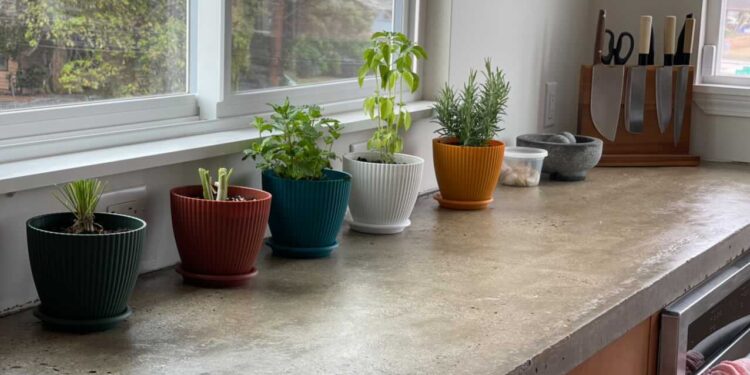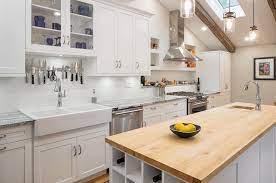Exploring the advantages and disadvantages of concrete countertops offers valuable insights into this increasingly popular option for kitchen and bathroom surfaces. From its durability and customizable aesthetics to potential drawbacks such as maintenance requirements and susceptibility to staining, understanding the nuances of concrete countertops can help homeowners make informed decisions when planning their interior design projects. Explore the concrete countertops pros and cons in this comprehensive analysis, uncovering the key factors to consider when weighing concrete countertops pros and cons.
Advantages of Concrete Countertops
Customizable Design
Explore the comprehensive analysis of concrete countertops pros and cons, delving into the advantages and disadvantages of this popular kitchen surface option. One of the most significant advantages of concrete countertops is their ability to be fully customized to suit your aesthetic preferences. Unlike natural stone materials like granite or marble, concrete countertops can be poured into any shape or size, allowing for endless design possibilities. You can choose from a wide range of colors, textures, and finishes to create a unique look that complements your overall interior design scheme.
Durability
Concrete is an incredibly durable material, making it ideal for high-traffic areas like kitchens and bathrooms. When properly sealed and maintained, concrete countertops can withstand heat, scratches, and stains better than many other countertop materials. With the right care, they can last for decades, making them a long-term investment in your home.

Versatility
Concrete countertops can be used in various applications beyond just kitchen and bathroom surfaces. They can be integrated into outdoor kitchens, bar tops, and even furniture pieces like coffee tables and desks. Their versatility makes them a versatile option for both residential and commercial spaces. Delve into the world of concrete countertops as we uncover the concrete countertops pros and cons, providing valuable insights for your next design project.
Eco-Friendly
Concrete is a sustainable building material, making concrete countertops an eco-friendly choice for environmentally-conscious homeowners. Many manufacturers use recycled materials in the production of concrete countertops, reducing their carbon footprint. Additionally, concrete countertops can be fabricated on-site, minimizing transportation costs and emissions associated with shipping.
Disadvantages of Concrete Countertops
Porous Nature
One of the primary drawbacks of concrete countertops is their porous nature, which makes them prone to staining if not properly sealed. Spills from acidic liquids like wine, vinegar, or citrus juices can penetrate the surface and leave behind unsightly stains. Regular sealing is necessary to protect the countertop and maintain its appearance over time.
Weight
Concrete countertops are significantly heavier than traditional countertop materials like laminate or quartz. As a result, they may require additional structural support, especially in older homes with weaker cabinetry or inadequate countertop supports. It’s essential to consider the weight of concrete countertops during the design and installation process to ensure they are properly supported.
Initial Cost
While concrete countertops offer long-term durability and customization benefits, they can be more expensive to install initially compared to other countertop materials. The cost of materials, fabrication, and installation can vary depending on factors such as the complexity of the design, the location, and the contractor’s expertise. Homeowners should budget accordingly and consider the long-term value when investing in concrete countertops. Discover the ins and outs of concrete countertops with our comprehensive analysis, examining the concrete countertops pros and cons in depth
Maintenance Requirements
Proper maintenance is essential to keep concrete countertops looking their best over time. In addition to regular sealing, concrete countertops may require periodic resealing to maintain their protective barrier against stains and moisture. Cleaning products containing harsh chemicals should be avoided, as they can damage the sealer and compromise the countertop’s integrity.
Conclusion
concrete countertops offer a range of advantages, including customizable design options, durability, versatility, and eco-friendliness. However, they also come with their own set of disadvantages, such as porosity, weight, initial cost, and maintenance requirements. Before choosing concrete countertops for your home, it’s essential to weigh these pros and cons carefully and consult with a knowledgeable contractor to ensure they are the right choice for your specific needs and preferences. With proper care and maintenance, concrete countertops can provide years of beauty and functionality to your kitchen or bathroom space.







